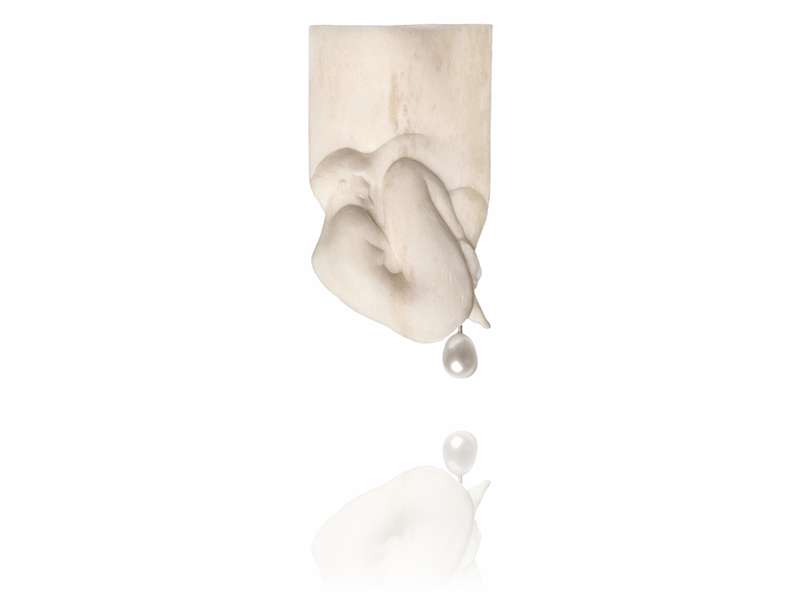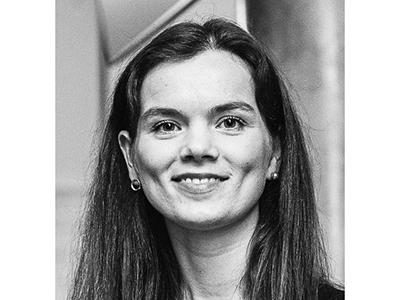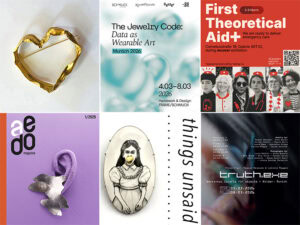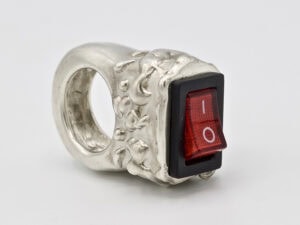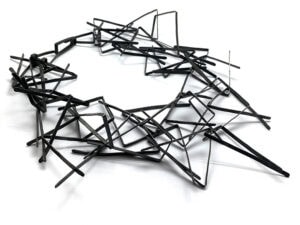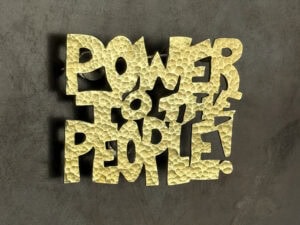One of the biggest events in the field of Latvian jewelry in 2018 was the establishment of the Latvian Jewellery Art Association (LJAA). There was a Latvian Jeweller association that operated from 1993 until 2012, but data on its activities hasn’t been updated in the Register of Enterprises for the past eight years. Several jewelry artists are also members of the Artists’ Union of Latvia, but the generation of mature jewelry artists was looking for a fresh platform to put their ideas into action and meet like-minded people. LJAA was established by husband and wife jewelers Zane Vilka and Jānis Vilks, and a fellow artist, Valdis Brože.
Related: AJF’s Interview with Valdis Brože
Related: Amber in Contemporary Jewelry
LJAA made its first contribution to the public by displaying art jewelry in Cēsis exhibition hall, in Latvia, during summer 2019. To my mind this exhibition, A Priori, was a success—LJAA’s first opening also helped the members get to know each other better. The next exhibition, Mark, opened recently, on February 7, 2020, at the Mark Rothko Art Centre, in Daugavpils, Latvia.
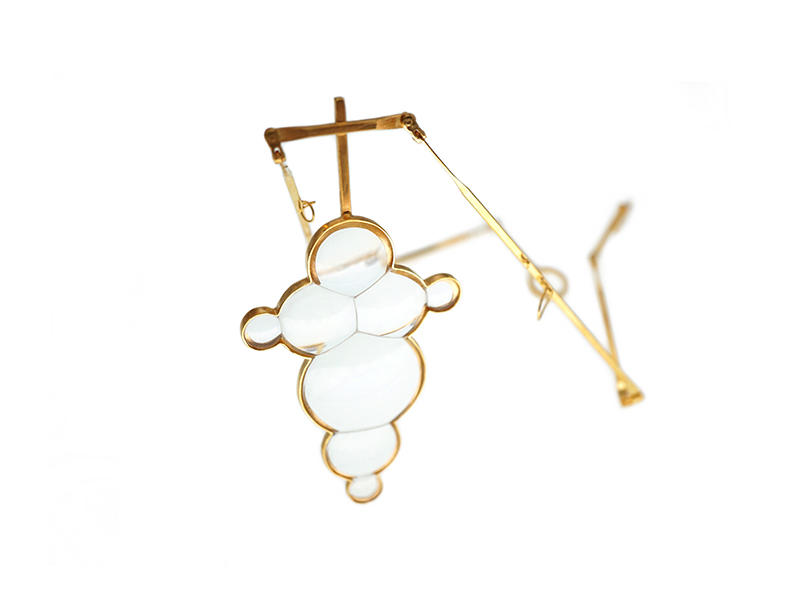
In a wider geographical context, the most prominent Latvian jeweler of 2019 could be Valdis Brože, who became the latest AUTOR Award winner, at JOYA Barcelona in October. His success in 2019 was probably rooted in November 2018, when he opened his solo exhibition, Imprint, at art gallery Putti.
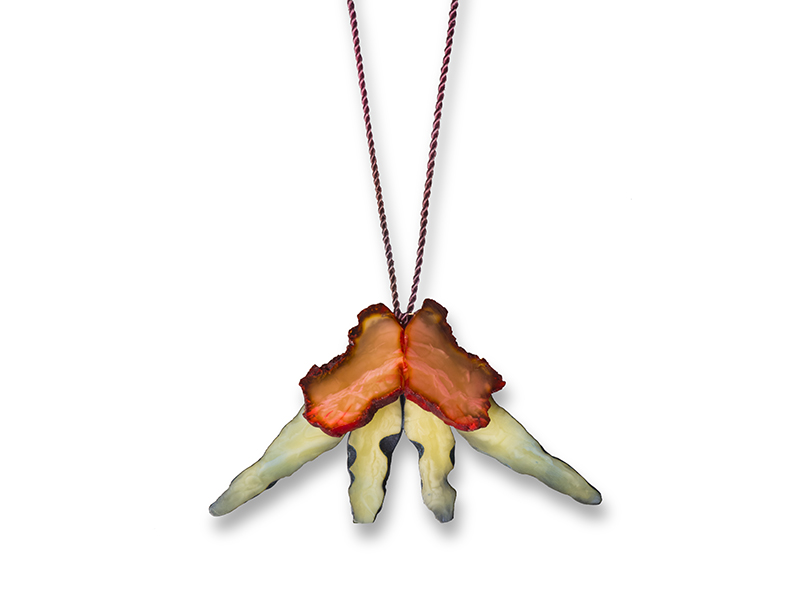
Jelizaveta Suska has been working and living internationally for approximately seven years, but her work can still be called Latvian jewelry art as she lived in Latvia until she obtained her bachelor’s degree. She has been chosen to participate in Schmuck 2020 during the 72nd International Trade Fair Munich in March. In her collection Rebirth, she worked with a very important material in the context of Latvian jewelry—amber. The material is widely interpreted and Suska was looking for a new quality by experimenting with coloring it. “I place amber pendants together with an amber cord made from amber fiber that was developed less than 10 years ago at Riga Technical University. I either spin or weave the cords by hand,” she explains.
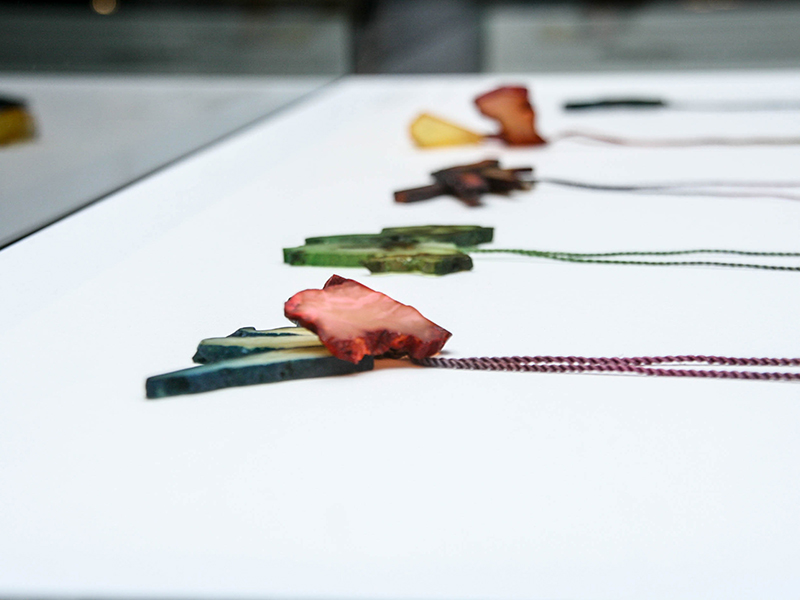
In summer 2013, artist Vladislavs Čistjakovs created his brand, Vladislav Chistyakov Jewellery, which continues to successfully operate today. He specializes in making custom jewelry from precious metals, with precious and semiprecious stones. I got to know him during his studies at The Art Academy of Latvia. His work embodied intelligence, not to mention qualitative performance. But with all that, he could make a harsh joke both in his work and in life. His collection Trajectory perfectly visualizes his accuracy and ingenuity. Simple shapes and a deeply thought-out composition provide both excellent exhibition work and pieces of jewelry.
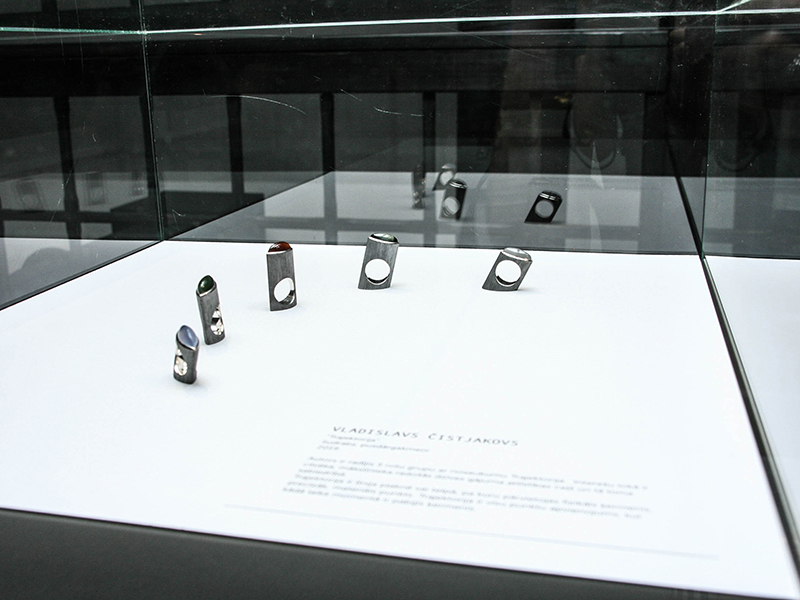
Andris Silapēters is a professor at The Art Academy of Latvia and it’s hard to imagine the metal design department (including jewelry) functioning without him. In May 2019 the exhibition Perfect Mess opened its doors to visitors in Riga’s Tallinas Street Quarter. In it, students, graduates, and lecturers from the Art Academy of Latvia’s metal design department showed their most recent work. Silapēters exhibited two of his latest miniatures/brooches cast in silver.
In December 2019, the metal design department opened another exhibition, titled Raised Temperature, in Gulbene, Latvia. Four out of eight miniatures/brooches in the exhibition were executed by Silapēters in 2019. He has been faithful to the crafts in their traditional sense and at the same time remains able to create timeless masterpieces. In an interview from 2015 he explains: “Nevertheless I am a Soviet product (author’s note: raised within the Soviet occupation zone) … when understanding of beauty and aesthetics were sought through form. What is now called art is mixed up with media and advertising. I am not there to judge whether it is right or wrong, but I am also not a part of it. I remain faithful to the school and the general understanding of creating the beautiful.”
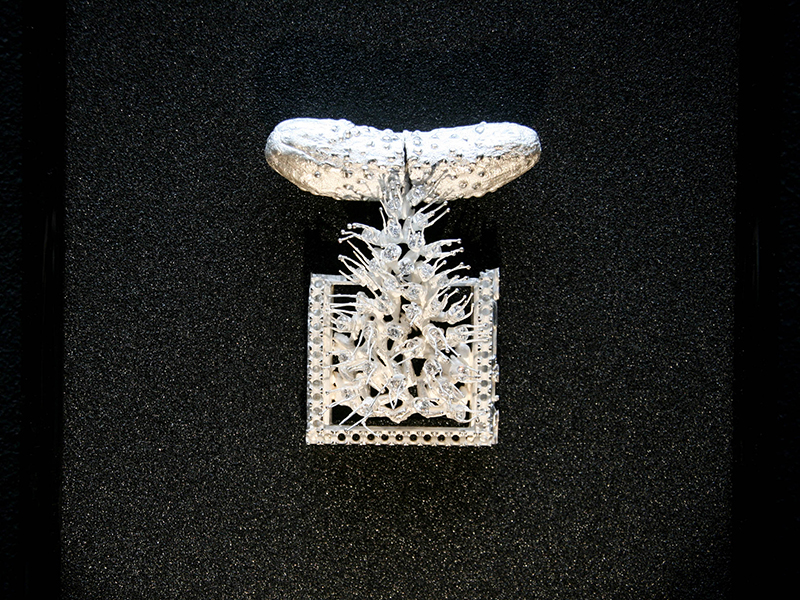
At the beginning of summer 2019, art gallery Putti presented Maya.Illusion माया, a solo show by artist Māris Šustiņš. Later that year, in August, he and the aforementioned Valdis Brože created the jewelry collection Kocmoc for the new Latvian brand of exclusive jewelry, Óde. Unlike the Kocmoc collection, Māris Šustiņš’s work is noted for its frequent use of titanium. On one hand he makes the kind of jewelry people usually expect to see—rich with precious and semiprecious stones, floral and insect motifs. On the other, he balances on the border between kitsch and banality. Over all, the specific taste and strong appeal of his jewelry pieces remains.
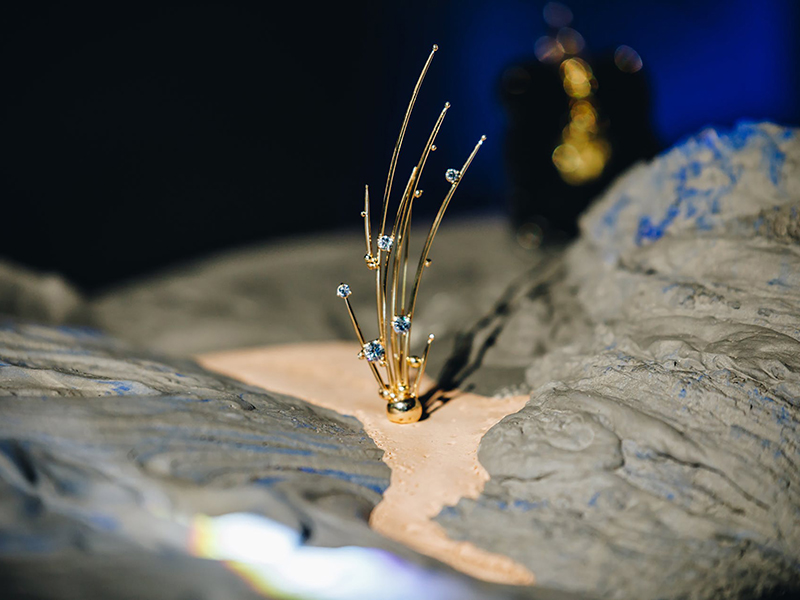
At the end of 2019, jewelry artist Guntis Lauders traveled to Berlin and Hamburg to show his new jewelry collection. He and his brother, Andris Lauders, are also members of LJAA and participated in the exhibition A Priori. Guntis showed his collection Primavera, and Andris offered necklaces in silver and gold with hematite and sapphire. They are both prominent jewelers who studied in Estonia, as did a number of other Latvian artists in the second half of the 20th century, since at the time higher education in jewelry wasn’t yet available in Latvia.
Fashion designer Sabīne Skarule recently became the winner of the H&M Design Award 2020, which was announced in November 2019. Her winning collection drew on her memories of her childhood in Latvia. Skarule took knitting techniques, folkloric patterns, and visuals of traditional materials and gave them a fresh new look. She completed her master’s degree in fashion at the Royal Academy of Fine Arts in Antwerp in summer 2019 and is currently working on launching her own label. In the collection, called +371, accessories play an important role. Her amber pendant is one of my 2019 favorites.
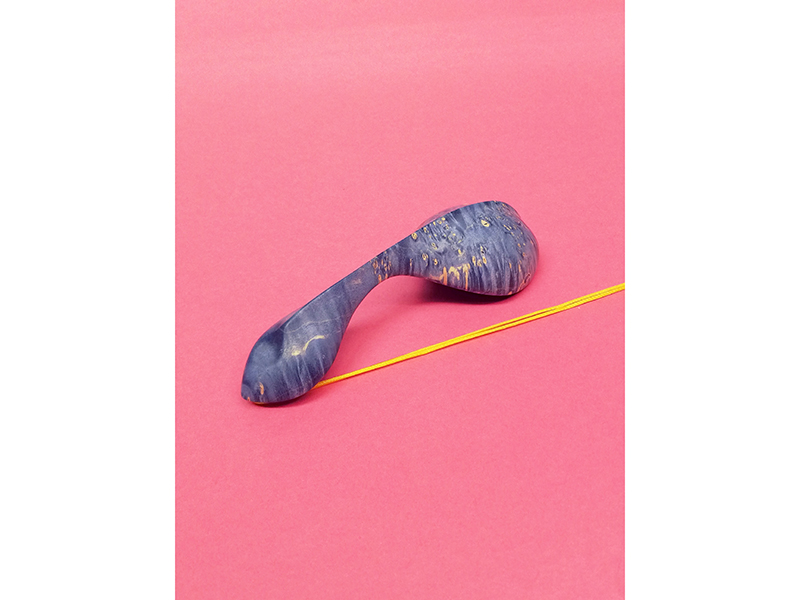
Latvia is rich with a young generation of jewelry artists, including Rasma Pušpure, Una Mikuda, Lāsma Ansone, and Maija Vītola-Zitmane. They are all former students of the Art Academy of Latvia. Pušpure is also a teacher at the academy. She says she’s passionate about slow fashion and one-of-a-kind pieces. Her necklace Behind the Scenes shows her interest for slow fashion—the piece is made from the waste that is left behind by the gilding process.
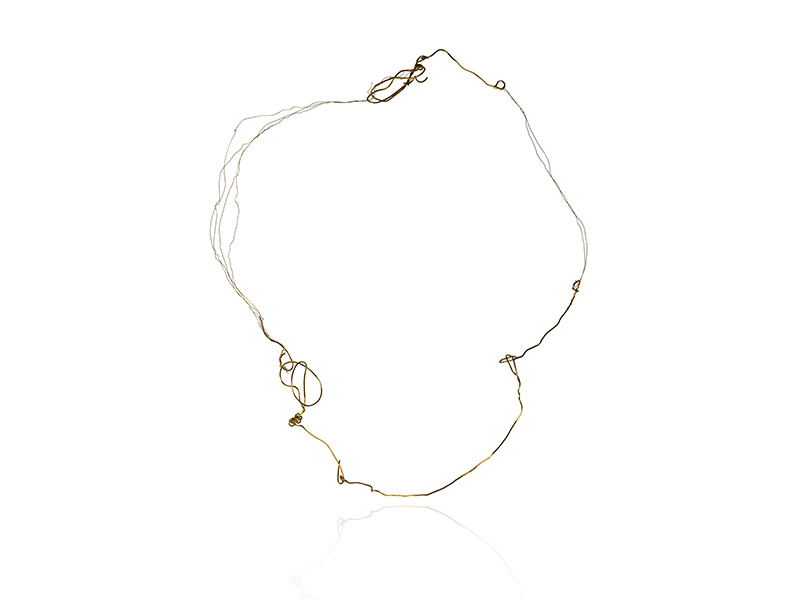
There are around 30 everyday practitioners in Latvia and way more artists who focus on jewelry periodically. This might sound like a small group, but for a country with population of 1.92 million, it is actually decent. One good way of keeping an eye on them is to follow the activities of the Latvian Jewellery Art Association.[1]
